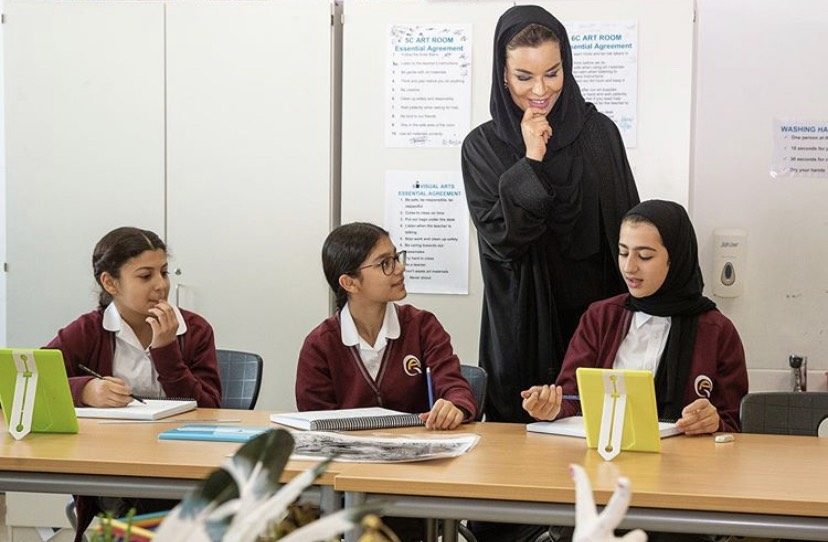Qatar on Wednesday inaugurated the first ever September 9 International Day to Protect Education from Attack.
The fight for the right to education is subject to various hurdles for many across the globe. In recognition of this basic human right, the UN General Assembly unanimously passed resolution 74/275 on May 28 to establish September 9 as the International Day to Protect Education from Attack.
Sheikha Moza bint Nasser, Chairperson of Education Above All Foundation (EAAF) and a member of the UN Sustainable Development Goals Advocates Group, led the initiative to mobilise international support to ensure accountability for the ongoing attacks on education and armed violence against children around the world.
Read also: Qatar’s national university jumps 90 places in global ranking
On Wednesday, in commemoration of the International Day to Protect Education from Attack, EAAF along with UNICEF and UNESCO hosted a high-level virtual event to promote the importance of the day. The event began with an opening address by Sheikha Moza, followed by UN Secretary General António Guterres and Professor Tijjani Muhammad Bande, president of the 74th Session of the General Assembly.
“We do not want this day to be simply a ceremonial day on the United Nations calendar. Protection of education must be reflected and embodied by action on the ground,” said Sheikha Moza in her opening address.

“While we are opening schools and enrolling children in one country, schools that we built in other countries are being targeted and destroyed,” said Sheikha Moza. “And because destruction is, naturally, easier than construction, it is quicker to destroy a school than to build one.”
According to the Education Under Attack 2020 report, there have been approximately 11,000 reported assaults on education, with schools and universities used for military purposes between January 1, 2015 and December 31, 2019. These attacks harmed at least 22,000 students and education personnel and were carried out in 93 countries – a stark number that covers nearly half of the world.
Over two-thirds of the attacks on education between 2015 and 2019 directly targeted schools – including intended or actual use of force by armed forces, law enforcement, other state security entities, and non-state armed groups. The attacks included arson, use of improvised explosive devices (IEDs), airstrikes, ground strikes, raids, and looting. Additionally, girls are being subject to rape, child marriage and kidnapping – preventing them from accessing education.
“These attacks simply must not continue…schools and universities are supposed to be safe spaces where learners can grow, develop and be empowered,” said Guterres in his opening address. “In protecting education from attack, we must also use education as a force to prevent attacks.”

Added burden of the pandemic to education
COVID-19 was a recurring topic during the event, where panelists addressed the toll the pandemic has taken on students and educators already struggling to access education. Panelists emphasised the danger of the deadly outbreak, which amplified the pre-existing challenges and inequality among children in education.
“Today, the COVID-19 pandemic has sparked a new education crisis on a massive scale. I fear especially for vulnerable children and youth impacted by violence, displacement and protracted conflict,” said Peter Maurer, president of the International Committee of the Red Cross (ICRC).
In response to the health crisis, the ICRC has designed a multidisciplinary approach by providing electronic learning, promoting hygiene and providing teachers with psychosocial support.
“Collectively, we need to do more. I hope this international day is a clear rallying calling for action. We must not simply help people survive, we must enable lives of dignity and opportunity,” said Maurer.
Follow Doha News on Twitter, Instagram, Facebook and Youtube







